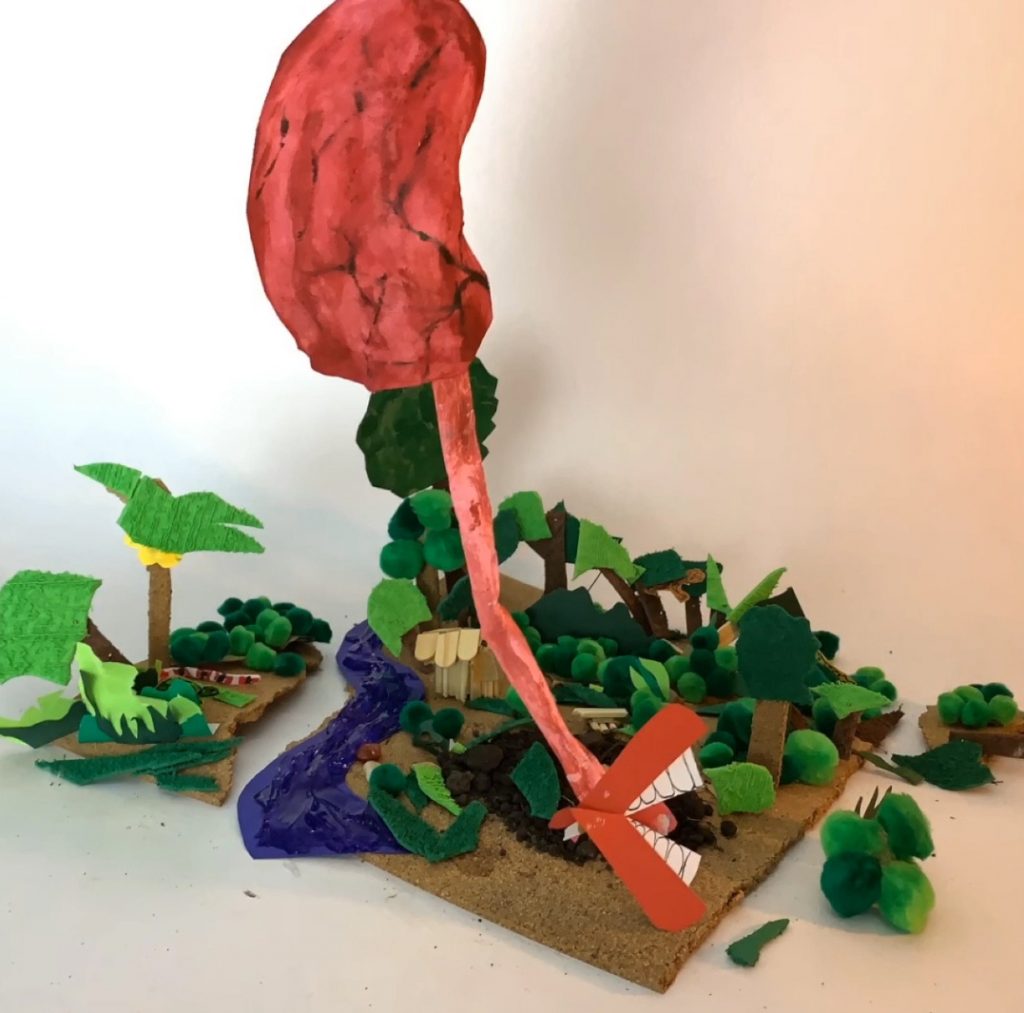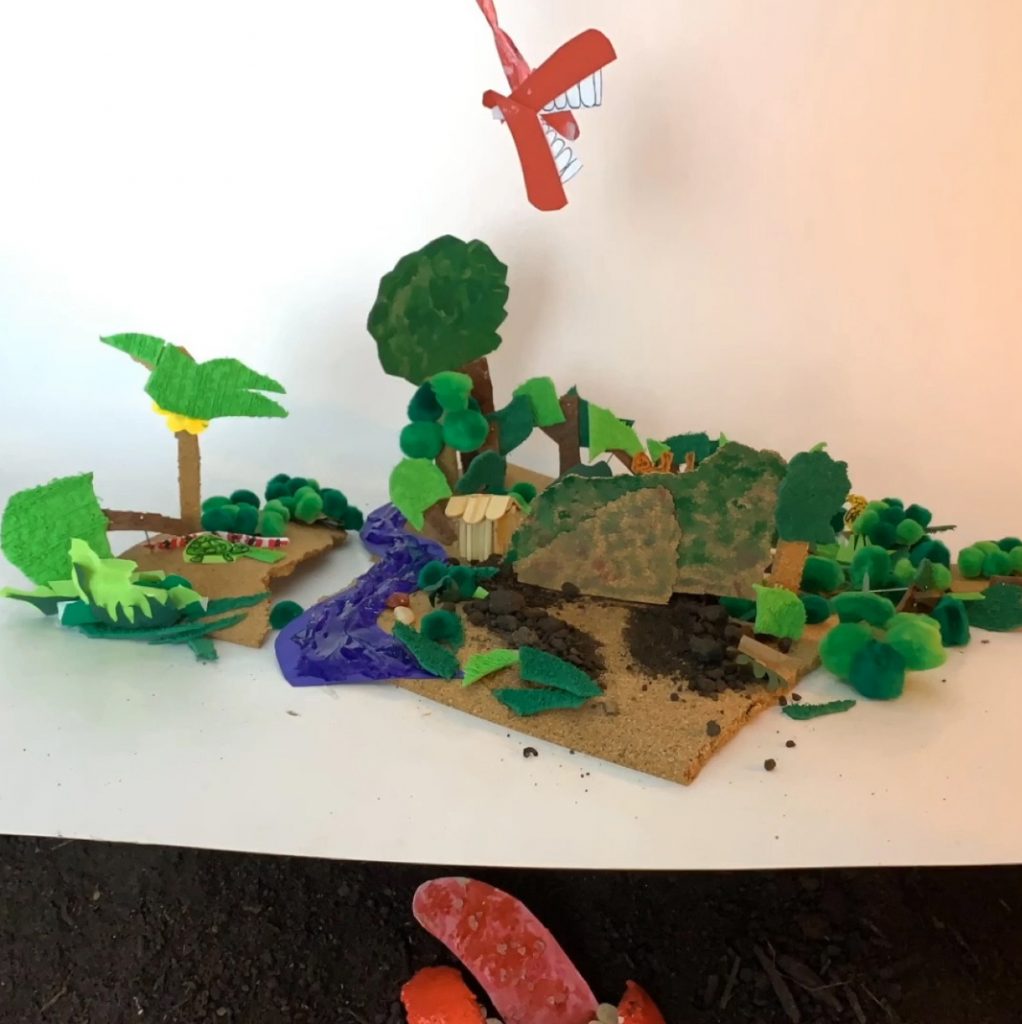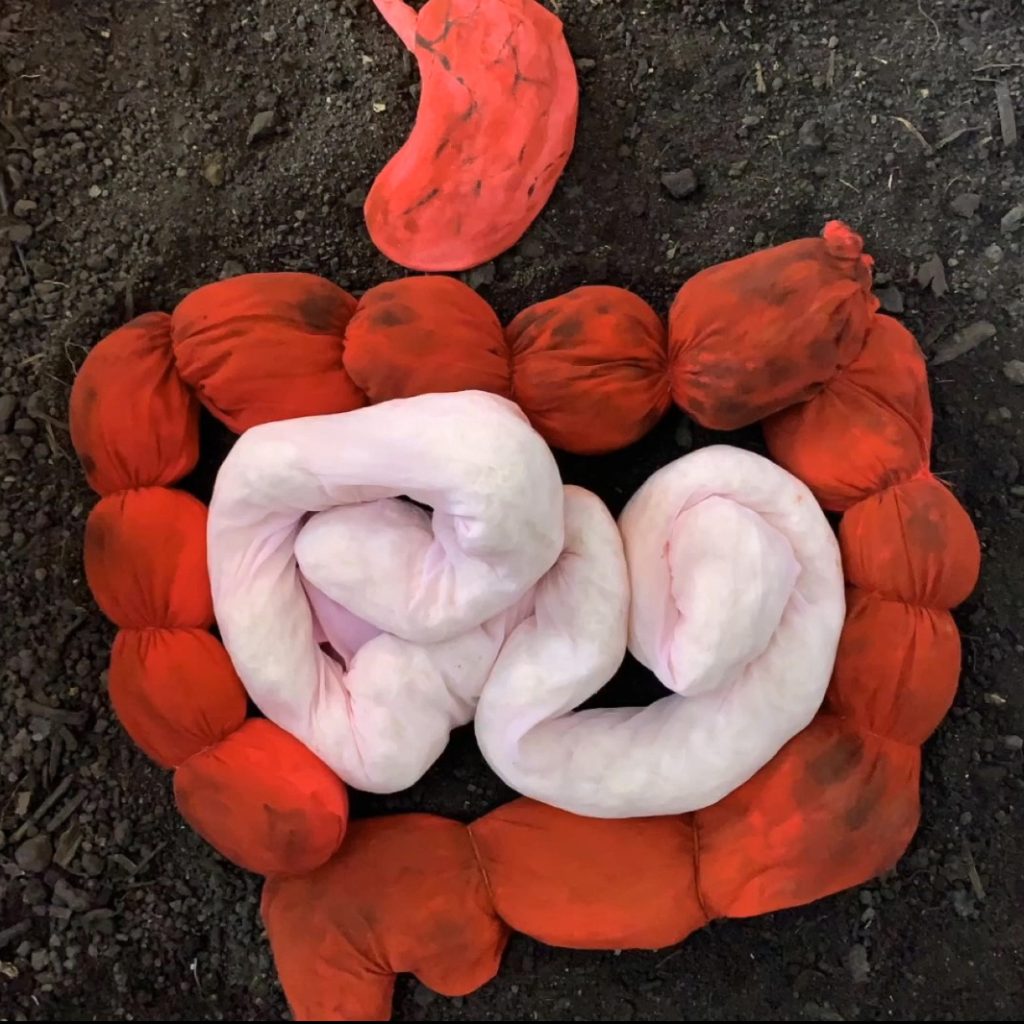[PT]
Quando Marcel Duchamp lançou a ideia de que existe um olhar que não é retiniano, que não se forma no olho, libertou os artistas e sua plateia para imaginar uma forma de ver que não está apegada ao seu órgão central. Abria assim precedente para que pudéssemos pensar em maneiras de expandir e des_orgão_nizar os outros sentidos. Paladar Tridimensional se inspira em Duchamp para imaginar de que forma podemos conceber um paladar que não se forma na boca, mas no mundo, em estreita relação com a paisagem, nas extensões para dentro e fora de nossa cavidade mastigante. O gosto ganha assim proporções ecológicas e complexas, pois já não está limitado às nossas papilas gustativas. Tal foi o ponto de partida para um processo colaborativo entre Jorgge Menna Barreto, Lara Fuke e Rafael Spínola, que resultou em uma animação que mistura maquete, desenho e uma trilha sonora de Hugo Rocha.
Curadoria: aarea. Open-ended Encounters é um projeto da Fundação suíça para a cultura Pro Helvetia e do aarea no contexto do programa na América do Sul «COINCIDÊNCIA».
Clique para assistir ao video completo
—
[EN]
When Marcel Duchamp launched the idea that there is a look that is not retinal, that does not form in the eye, he freed the artists and their audience to imagine a way of seeing that is not attached to their central organ. It opened a precedent so that we could think of ways to expand and disorganize the other senses. Three-dimensional Taste is inspired by Duchamp to imagine how we can conceive a taste that is not formed in the mouth, but in the world, in close relationship with the landscape, in the extensions in and out of our chewing cavity. Taste thus gains ecological and complex proportions, as it is no longer limited to our taste buds. Such was the starting point for a collaborative process between Jorgge Menna Barreto, Lara Fuke and Rafael Spínola, which resulted in an animation that mixes mockup, drawing and a soundtrack by Hugo Rocha.
Curatorship: aarea. Open-ended Encounters is a project of the Swiss Foundation for Pro Helvetia and aarea culture in the context of the South American program «COINCIDÊNCIA».




